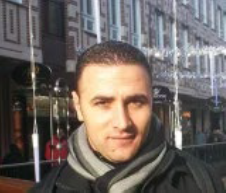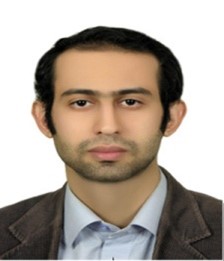Invited Speakers

Dr. Jalil Boudjadar
Aarhus University
Speech Title: Embedded systems for Edge computing and AI applications:
Potential, technology gaps and future
Abstract: Although FPGAs are limited in computation and storage
resources, many recent analysis have showed that FPGAs can form a promising
ground to the deployment and acceleration of deep learning applications
given the parallelization potential of FPGAs and the pipeline-based
architecture of neural networks. Moreover, FPGA-based acceleration enables
to combine application flexibility and deployment optimization as explicit
design steps. As an example about the potential of FPGAs, Amazon Elastic
Compute Cloud (Amazon Web Services EC2) F1 instances are Xilinx FPGAs
reconfigured to accelerate data workloads supporting machine learning
inference, providing 90x higher performance than CPUs. However, there is a
lack of common architectural acceleration models, deployment methodologies
and match-making tools when using FPGAs for modern software applications.
This talk will highlight the potential of FPGAs as a means to deploy Edge AI
and computing, and elaborate on the actual challenge and needs for (multi-)
FPGA-based acceleration and deployment in terms of architecture, methodology
and technology. Besides, it will also elaborate on how FPGAs stand out as
promising sustainable computing platforms. The talk is inspired by the
outcomes from our Embedded AI
project.
Bio-Sketch: Jalil Boudjadar received the M.Sc. degree from Limoges University, in June 2008, and the Ph.D. degree from Toulouse University, France, in December 2012. He is currently an Associate Professor with the Electrical and Computer Engineering (ECE) Section, Department of Engineering. He is also a member of the DIGIT Research Centre. His research interests include design, validation and optimization of embedded systems, modeling and intelligent control for cyber physical systems, digitization, digital twins and adaptive runtime engineering, machine learning and embodied artificial intelligence, real-time systems and scheduling theories, and formal methods for security, safety and data analysis.

Dr. Farzin Shama
Islamic Azad University
Speech Title: A music utopia, based on cognitive life
Abstract: In the real word, the promise of equal access to
information and opportunities has not been fully realized. There are still
barriers to entry and participation in various fields, including education,
careers, and social networking. While the internet has opened up new
possibilities for connectivity and knowledge-sharing, there are still
challenges to overcome in terms of infrastructure and access. In the realm
of social networks, while platforms like Facebook and LinkedIn have
connected people in unprecedented ways, there are still limitations and
inequalities that persist. The rise of specialized social networks has
provided new avenues for connection and collaboration, but there are gaps in
representation and accessibility that need to be addressed. As we look
towards the future, advancements in communication technology such as 4G, 5G,
and satellite-based internet hold promise for expanding access and
connectivity on a global scale. These developments offer hope for a more
inclusive and equitable society where opportunities are more equally
distributed."Musopia" is a music utopia, inspired by the idea of cognitive
communications. The proposal aims to create a virtual music world where
users can upload and share their homemade musical performances, providing
equal opportunities for showcasing talent and connecting with producers
globally. By leveraging artificial intelligence, specifically artificial
neural networks, the platform seeks to foster collaboration, learning, and
creativity in the music industry. Through real-world simulations, users can
govern their musical territories and participate in a socialized community
focused on fair representation and financial rewards for artistic efforts.
Bio-Sketch: Farzin Shama received the B.E., M.E., and Ph.D. degrees in electronics from Razi University, Kermanshah, Iran in 2009, 2012, and 2016, respectively. He is co-founder of Novin Basamad Company active in the electronics and measurement industries. He is an expert with up to dated engineering software such as ADS, MATLAB, AutoCAD, COMSOL, etc. He has designed various measuring sensors and electronic circuits for the industry. He also has collaborated with many companies to design the electrical installations for the buildings including hospitals (total area of 50,000 m2). He has been registered two patents in Iran. He is an assistant professor in Kermanshah Branch, Islamic Azad University, Kermanshah, Iran. He was the head of the electrical engineering department between 2018 and 2019. His research interests include artificial intelligence, complex circuits, and systems solutions, Analog circuits and design, microwave engineering, passive and active circuits design and fabrication, photovoltaic cell design, and neuron implementation. He was proud to achieve superior researcher in the engineering faculty of Razi University in 2011 and 2012. Also, he has been selected as the top student of Iran in the Ph.D. Degree in 2015. He has published more than 80 papers in international, domestic journals and conferences. He was proud to achieve a superior researcher in the engineering faculty of Kermanshah Branch, Islamic Azad University, in 2018.
